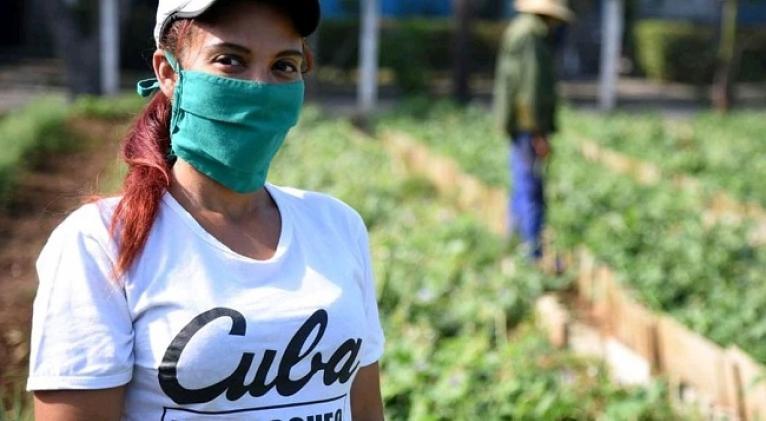International Women's Day: Two Years Later
especiales

About two years have gone by since the world celebrated March 8th without wearing a mask.
No one could have guessed back then, between applauses and dance music, that a microscopic entity would appear on the face of Earth that would endanger the life of humanity.
Much less would women worldwide have been able to imagine how much awaited them, particularly them, because of COVID-19.
But just days ago, the United Nations Development Program (UNDP) ratified in the report "The pandemic of inequality" that this threatening health situation evidenced, once again, the differentiated way in which crises impact women, deepening gender inequalities and placing this population sector at a disadvantageous position in terms of their economic and physical autonomy, as well as in decision-making.
Until such extents that the spread of this coronavirus, with its sequel of infections and deaths, increased threefold the workloads for women.
For women it has been two years which are equivalent to a decade of setbacks in terms of rights, due, among other reasons, to job loss, lower financial income, and a huge increase of unpaid activities, especially those referred to home and family.
This is validated by research from several international organizations. Among them, the International Labor Organization (ILO), which revealed how only in Latin America and the Caribbean, where the participation of women in employment had reached nearly 52.3% in the first quarter of 2019, fell to 43 % in the same period of 2020.
By the end of last year, of the 23.6 million jobs women lost at the worst moment of the crisis —the second quarter of 2020—, nearly 4.2 million remained to be recovered.
A report presented this month by the regional director of the ILO, Vinícius Pinheiro, indicates this, stressing the abysmal difference in the case of men, who had already almost completely recovered the 26 million jobs lost in the region at that time.
The strongest impact was concentrated precisely where the majority of Latin American women work: informal jobs and in micro, small and medium-sized enterprises.
The global health crisis “exacerbated the existing structural inequalities. Rural women, heads of households with young children, those with less training and education, indigenous and Afro-descendant women have been more affected," said Roxana Maurizio, regional specialist in labor economics at the ILO.
Gender violence also put its figures in the red due to the pandemic. The report “Violence against women during COVID-19”, by UN Women, reveals, according to a survey applied in 13 countries, that domestic violence intensified during the pandemic and sexual harassment in public places increased.
They are just figures, but behind them squirm millions of stories of fractured lives and still today in bankruptcy.
Some might suppose that they are not the most suitable for a day like this, of celebration. But the best way to celebrate today, in this world in crisis, is knowing to amend and foresee.
Incidentally, the aforementioned UNDP report noted that “the COVID-19 pandemic can be interpreted as a phenomenon that exceeds the limits of a global health crisis. It’s part of a constellation of events that profoundly questions the model of society in which most people worldwide live.
Cuban women between the stove and the microscope
In Cuba, women have also been hit by the global health situation, but there are singularities and political will that distinguish this Caribbean island.
No wonder the opening ceremony for this International Women's Day, held in Yaguajay, Sancti Spíritus, Teresa Amarelle, member of the Political Bureau of the Communist Party of Cuba and general secretary of the Federation of Cuban Women (FMC), highlighted the example that this country represents for many women around the world, by showing them that it’s feasible to transform society by participating in decision-making and in the scope of their full rights, even in the midst of a severe economic, commercial, and financial blockade imposed by the United States against Cuba .
Cuban women’s role is evident , palpable, actively participating together with men in the popular consultation process on the draft of the new Family Code, once again Cuban women are worthy of praise, taking part in both production and services; either before a stove or looking through a microscope.
Today in Cuba, 53% of those who do research in science and engineering are women; They make up 70.4% of the health personnel, and they were also the ones leading the more than 70% of the 900 research and innovation projects for the control of COVID-19 deployed in Cuba.
For these and other reasons, the Cuban president, Miguel Díaz-Canel Bermúdez, recently recalled on his Twitter account: "In Cuba there’s no better celebration for women, on the occasion of March 8, its International Day, than activism growing for its full realization in a society that increasingly offers more opportunities for their protagonism".
Translated by Amilkal Labañino / CubaSí Translation Staff














Add new comment